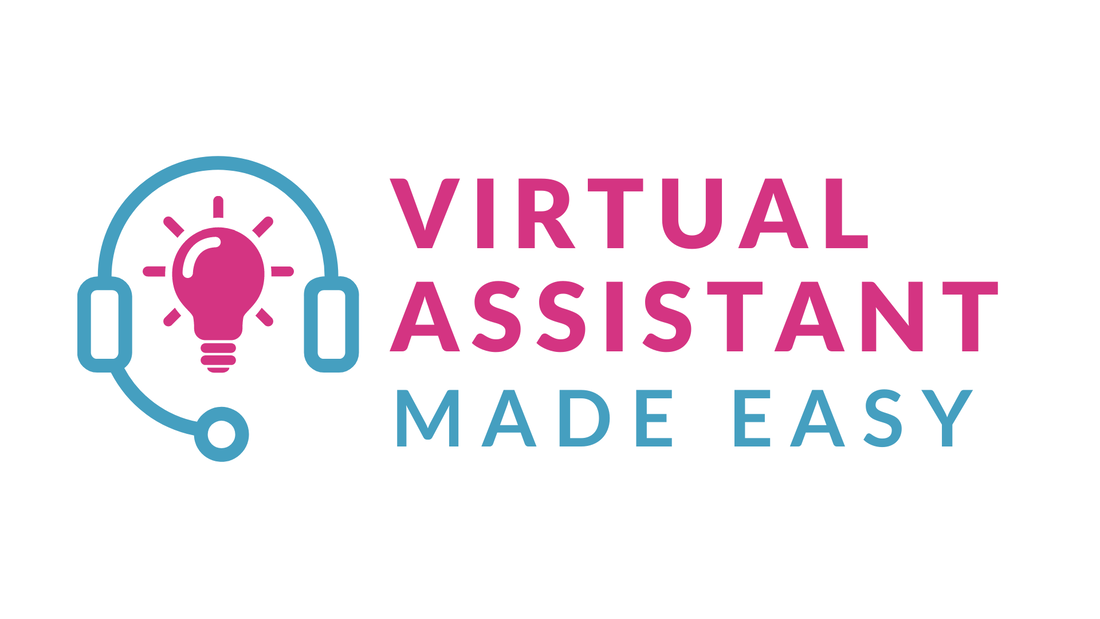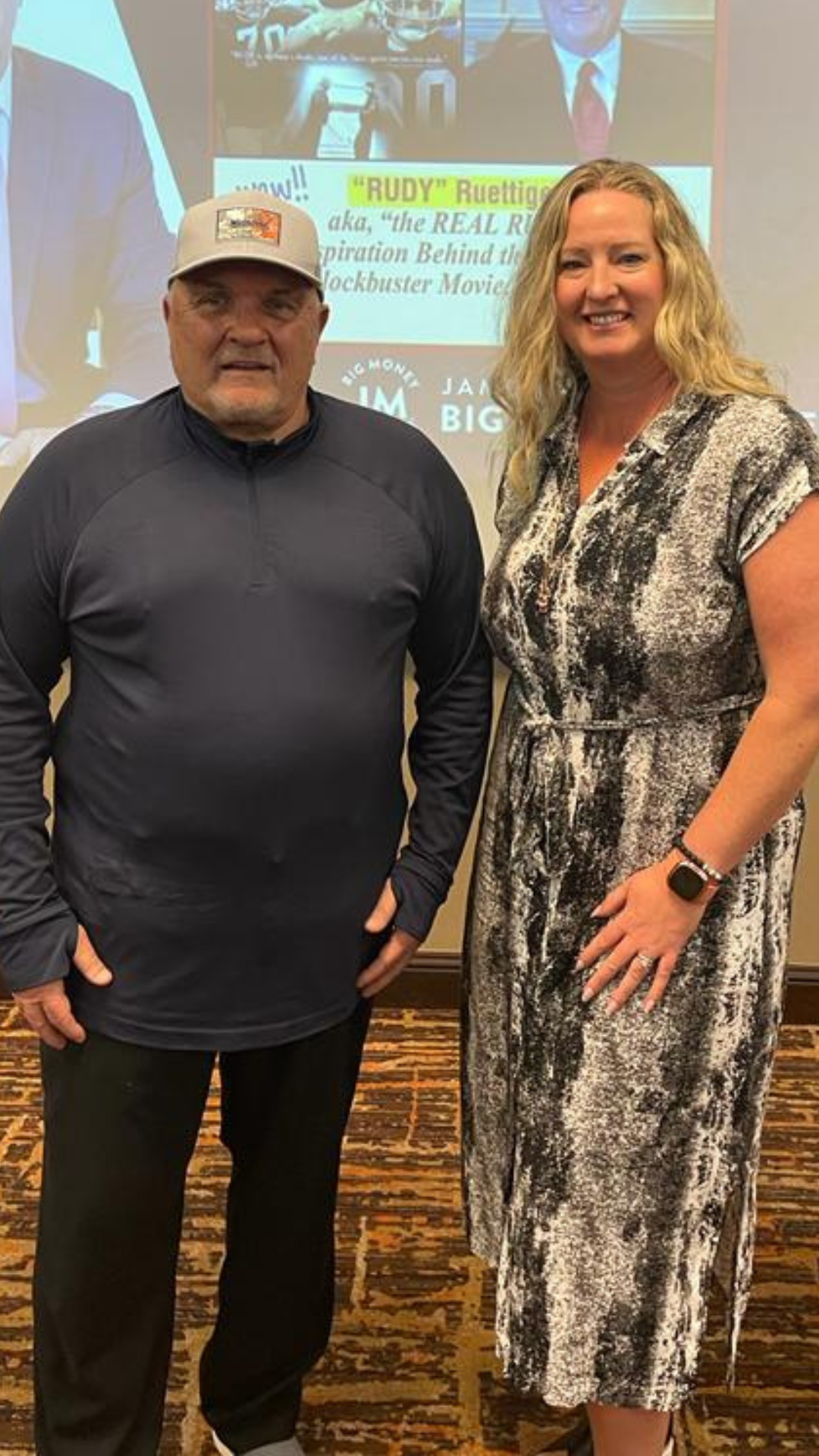|
In one of my previous blogs, I talked all about how to know if you're a workaholic and how it's hurting you. (If you want to know if you are a workaholic and how much of a workaholic you are, I suggest you take this free quiz: How Much of A Workaholic Are You) Now, I'm going to dive deeper. Do you feel a little bit of burnout coming on? Are you wanting to work less and enjoy life more? In this blog and the next one, I’ll go through the five ways to stop being a workaholic. In each of those five, I’ll also share three practical steps to help you work less. Then, from those 15, I encourage you to choose 2 or 3 that you will implement in the coming weeks. The 5 ways to stop being a workaholic: First: Limit the hours in the week for productive work. You may be busy, but not productive. From Monday to Friday, how many hours do you really want to work? If you work on weekends, how many hours will you work then? Then block some time to relax and recharge. You need to stop overscheduling yourself. How to stop over-scheduling yourself:
Choose how many hours you will work each week and then how many hours each day. Once you decide you need to stick to not just, “These are the hours I'm working.” But also, “These are the hours I'm not working.” Block it in your calendar. That's important. 2. Put in time in your calendar for other activities. There are 10 areas of life - fun and recreation, family, friends, spirituality, career, finances, physical environment, significant other/romance, health, personal development/education. Often, our schedule is filled only with work-related tasks and things we strive for in our careers. Personal development oftentimes can be bumped out as well because we're focused on our professional life. We’re reading, taking courses and listening to podcasts for our careers, but it isn't the personal development area. Look at your calendar and see if there are other areas of your life on it. Think of the fun things that you want to do. Go for lunch with friends, see an exhibit, take painting lessons. Add in time for other areas of life. If it’s not there now, book some. 3. Book things for yourself during the day. You don’t just need to look to after work hours for your personal activities. Sometimes the workday is the best time to do things for yourself. For example, every Monday morning, I go to Pilates. This week, I have a counseling appointment and acupuncture scheduled. You might be questioning, “Well then when are you working Diane?” I have other things happening like evening events or I look things over like editing this blog. I take the time to do these personal things during the day, or else I get to the end of the day and realize I don’t have enough time for them. Booking them during the day means they won’t be postponed. Maybe you book a friend’s lunch, a doctor's appointment, read your favorite book, or go to the gym. You’ll be able to stop overscheduling yourself in these other areas by doing these other things. Second: Learning to say ‘No” This might be hard for you. I've done some podcasts and blogs on saying “No”. You can check out the one I did on How You Can Say No to A Client You Don't Want To Work With. How to learn to say “No”:
The key point is to be clear on what you want in all areas of life by going through the Wheel of Life. When you know what you want, it's easier to say “no” to the things that you don't want because you are saying “yes” to the things you do want. (If you want a copy of the wheel of life, email me at [email protected]). 2. Say “yes” to the things you want so you can say “no” to the things you don’t. You may know you want to play your piano more, spend more time with your kids or grow your faith. For example, if you know your health is a number one priority, and you want to be saying “yes” to your health, you decide, “I’ll go to the gym at 9 every morning” or “I’ll walk on my lunch every day.” So when someone says to you, “Hey, do you want to go do this?” or “Can you be in this meeting?” You will be able to say “no” if it conflicts with your yes”. It’s because if it’s a strong “yes,” then it’s in your calendar and you would be more likely to stay committed to doing it. 3. You can share your “Yes” with others. If people ask,
You could say, “Right now, I'm focusing on my health, and so I'd love to, but I just don't have time for it right now.” I've had someone say to me, “Oh, I'm focusing on my family right now. My family needs more of me, and so I can't take on anything else.” I love that response. I replied, “Wow, okay, that's where your priorities are right now. That's amazing. Congrats to you!” You don't have to give any reasons for why you are saying, “No”. ‘No” is an answer. But for many people, including myself, being able to share a stronger “yes” can give you confidence to say “no”. It can also help people understand you better and back off, as you may have experienced people asking you again and again. Now you have 2 of the 5 ways to stop being a workaholic and the 6 ways to implement it. Which will you put into play right now? Then the next blog will cover the other 3. Read my other blogs here:
0 Comments
March 20 is International Day of Happiness. However, the world right now does not feel very happy, does it? With everything going on in Ukraine, everything we're seeing on the news about the destruction, about all the refugees having to flee, it's hard to be in our own happiness. However, we do need to be coming from a place of our own happiness because we are the only ones responsible for our happiness. A lot of times, people get married, they join companies etc. and are expecting that other person or expecting the company, their job, their career, the money, whatever it is to bring them happiness. However, we are all in charge of our own happiness. Today, I'm going to share about owning your own happiness, sharing happiness, and some really great actions for happiness. International Day of Happiness This campaign is a global celebration to mark the United Nations’ International Day of Happiness. It's actually coordinated by Action for Happiness, a nonprofit movement of people from 160 countries, supported by a partnership of like-minded organizations. Canada was ranked 15th last year in happiest people in the world. It’s maybe lower due to COVID or because of the floods and fires, the protests, inflation and all the unrest that we've been feeling right now. The top seven countries are Finland, Denmark, Iceland, Switzerland, Netherlands, Luxembourg, and Sweden. Most of them are European countries, and I'm not going to go into why they're happier because I really want to bring it back to where we are and what we can do in our daily lives. Owning our happiness As I said, we are in charge of our own happiness, but society values certain aspects of our life to make us happy. We look to outward accomplishments, outward material goods like our house, cars, clothes etc. that we earn or buy. But the problem is we're not looking towards what truly makes US happy. I'll share a little bit about where I am right now. I'm hanging out in Ontario. I'm in my mom's guest room. This is one of the places where I am happiest - puzzling with my mom, sitting and watching the news or different TV shows together. We like anything that includes animals like the vet shows or the dancing shows. Sometimes even game shows. It's the simplicity of that. They bring me joy. Also, for me, it's walking in the sun. It's the laughter with friends and family. These are the simple joys that maybe during COVID, you found again. In my coaching world, I focus on having people switch from measuring their success in life for happiness and instead looking to their satisfaction. When it comes from success, we ask ourselves…
Where really we should be measuring our life and our happiness according to how SATISFIED we are. We would ask ourselves…
If you look at your life right now, how would you score your life based on success? And how would you score your life based on satisfaction? I do have a tool that I use to do this. But if you just gave yourself a number for both of them, what would it be? I get that there are different areas of life. I actually have 10 of them. By going through that, you can also see which areas are higher and in which areas are lower. But a lot of times, when I first work with someone and I ask what the number was for each area and I ask them why, they might say,
So again, it comes back to the things that we have… the things that we accomplish or earn. In the About section of dayofhappiness.net, I love this paragraph that says, “A profound shift in attitudes is underway all over the world. People are now recognising that 'progress' should be about increasing human happiness and wellbeing, not just growing the economy.” Some people tell me that they're happiest on vacation, and I asked why. They say, “Because I get to slow down. I get to sleep in. I get to cherish the moments and hang out with friends and have new experiences, and live slower.” No one's talking about how they achieved all these things on their vacation. What if we brought the things that seem only worthy of vacation into our regular days, for example:
These are the joyful moments, but yet we look to material items and accomplishments because we consider them to be so much bigger. With everything that's going on in the world today, happiness is not about the big material purchases or the achievements. It's about the little things in life. The little moments where we really get to enjoy ourselves. Back in 2015, the Day of Happiness campaign was focused on relationships. It says on the website, “We are a social species, and we thrive on we're closely connected to others. But modern society is leaving more and more people feeling disconnected, isolated, and lonely.” Where can you connect with another person in a real way like stopping by with some freshly picked flowers from your garden or inviting them over to have grilled cheese and soup? It doesn't have to be something major. Relationships. That's how we can share happiness, be part of more happiness and take action. Maybe you never thought about taking action toward your happiness. I kind of forgot about this for a while. I was just in the busy schedule of life and focusing on all the responsibilities I had. Like taking care of two kids and trying to get fit again after all the physical injuries and then having COVID. It wasn't until my counselor said, “Well, what in your life makes you happy? Are you choosing to do the things that make you happy?” This week, while I've been hanging out with my mom and with my family, I closed the computer. I just sat. I told stories. I listened to stories. I asked questions. I looked out the window and watched the birds. I chose happiness. I consciously made the decision to do activities for my happiness now. Now, why bother? With all the negativity in the world, we need to recharge. We need to refuel. We need to have our cups filled. We are so depleted. Maybe you're thinking, “I'm not depleted.” Maybe it hasn't hit you yet or maybe you are not living at your highest level of happiness. When a friend wanted to set up a meal train for me when my son broke his femur, I said, “Oh, we're okay.” Because I thought financially, we can just pay for meals. Plus there’s me and my husband so both of us can tackle this. Yes, we didn't have any family around, but I thought we'll get through this. It'll be okay. I just went into grin and bare-it mode and checked things off. I said, “No, we're good. We can handle this.” She said, “But for how long can you keep your head above water?” You might not even know you're treading water. But it might just take one more thing. We've had COVID. We've had protests. We've had natural disasters. Now, the war in Ukraine. There are a lot of things pulling at us: responsibilities, wearing masks, not wearing masks, vaccines, financial disturbances. Taking action on your happiness, I'd say is one of the critical things we need to do today to build up our energy and emotional reserves so that we don't get depleted. This is also a little message I'm reminding myself. Dr. Mark Williamson said, “The International Day of Happiness is more than just a fun celebration. It also reminds us all that the world is a better place when we connect with and care about the people around us.” Simple steps for Happiness Step one: I encourage you to choose one activity, one thing, or make one choice for your own happiness. Step two: Reach out to someone else, and do something where you get to share happiness in relationship with them. Then why not have this be a bit of a movement? This leads me to the third step. Step three: Post online about your happiness. What makes you happy? Maybe it's a photo of you with your dog by the beach. Maybe it is a bike ride with a friend. Share it to be a leader of a movement where we choose to own our happiness, increase it and create more happiness in the lives of others. How often do we get together and whine? It's a whine and wine Fest. What if we change the conversations to “What brought you joy this week?” “What made you happy?” They are simple steps, yet things we don't do because of the heaviness of the world and all of our responsibilities. We have a chance here. Not just on this one day, but every single day. So I hope you choose happiness. I hope you share happiness with others. I'd love to hear the things that you do for your happiness to inspire me and for me to be able to share it with others as well. So choose to be happy and to own your happiness! Read my other blogs here:
Are you wondering if you're a workaholic? Or are you wearing the badge of being a workaholic with pride? Today we're going to talk about how to know if you're a workaholic and how it's hurting you. But first, I invite you to answer my FREE quiz How Much of A Workaholic Are You because if you’re reading this blog, you probably have a strong inclination that you are a workaholic. Oftentimes in society, being a workaholic shows you're passionate about what you do and you're proud of what you do. People clap for you. People say, “Oh, wow, you're so busy” and “Oh, you're doing so many great things”. Workaholics are often rewarded at work. They set the bar so high that the company thinks, “Wow, they’re such a model employee. They're working so hard.” But working that much could be damaging to themselves and to others. Let me go through some different aspects of how to know if you're a workaholic and how each of them is hurting you. #1: You work longer hours than others. This can show up in different ways. If you work in a company, you’re first in the office and you’re last to leave. If you have your own business, you’re working into the night or maybe you miss dinner because you're working late or you finish at five, but then you go back to it for another round between seven and ten. For moms out there, I know this often happens because your kids come home at three, so you're working later in the day to catch up on those two missed hours. How this hurts you: Working longer hours can lead to burnout. Plus, it's taking away the time you have to be off. You end up feeling ON all the time. It also sets precedence especially if you are at a company where they expect you to produce that high level of work or that amount of work because you're working more hours and when you try to reduce the hours, you're not going to be able to get the same results. It's just not possible. #2: Your default is work. You have a couple of free hours here or there and you directly go to work. I see this a lot in my entrepreneurial clients. You then have a couple of hours on a Saturday afternoon free, so what do you decide to do? You decide to work. You're always turning to work rather than other things. How this hurts you: When your default is work, that's the thing that consumes most of your time and your energy, rather than the other things. You’ll be off balance and without rest you’ll get burnt out. #3: Your fun and recreation part of life is lacking. If we look at the “Wheel of Life” (I do a wheel with 10 different areas) and your fun and recreation part is lacking, it means you're not having fun. You don't have hobbies or other interests you get to enjoy. How this hurts you: The issue is you're now looking to your “work area” for all your fulfillment. You're not growing as a person in other ways. You're not able to just chill out and have fun and develop yourself. But when you don't have enough fun and recreation, then it feels scary to take time off. One of my clients in the past had a really hard time booking time off because with no fun and recreation, she was worried wondering, “What am I going to do when I'm not at work?” #4: You're always thinking about work. Let’s say you're at a dinner with girlfriends, but you're thinking about work. You could be hanging out with your kids, but you're thinking about work. You are on vacation, but you're thinking about work. How this hurts you: Your brain is always at work. It just doesn't get time off. It doesn't have that opportunity to say, “Okay, work is over, so I can move into fun, and be present with my family.” Work is always running through your mind in the background. That's stressful. This can cause high-level of cortisol to be pumping in your system and the adrenal glands to be overworked, that can lead to the next problem. #5: Your stress is high. Whether you are feeling it physically, mentally or emotionally, stress is detrimental. How this hurts you: When your stress is high cortisol levels are high, your adrenal glands are pushing. This causes you to hold weight. I'm not a doctor, but I've gone through this myself. When your stress is high, you're getting headaches or body pains. You're maybe getting sick more because your body doesn't have time to rest and your mind doesn't have that time to be off. This can cause anxiety, panic attacks and for you to shut down. #6: You don't take proper vacations. Have you taken a 10-day vacation or a one-week vacation? What I've seen in clients is they will book time off, and they will fill those days catching up on work or planning for the next quarter. That's not the intention of a vacation. That's not the intention of taking time off. Time off means having time not ON your work. Maybe you’re thinking, “Yeah, I like working.” Well, maybe if you had the opportunity to lay on a beach, go on an adventure, take a cruise, go sightseeing, learn how to cook Thai food, or do a yoga retreat, then you'd allow yourself to have a proper vacation and you'd enjoy it. How this hurts you: When we don't have complete time off, it's hard to feel rested. You don’t have something to look forward to. You don't have new memories to reflect on. What I found in my recent vacation was I was able to connect more fully with who I am as a person, which was really amazing. #7: You choose work over personal commitments. Maybe on a Friday, you see you have a doctor's appointment, but there's a report you want to work on a little bit more, so you skip your doctor's appointment. Or maybe you're not even booking doctor's appointments at all. Or you're not giving yourself the opportunity to go to the gym because you have work to do. You're not doing date nights. You're not going to your kids’ events that are happening through school because you're choosing work. Maybe on the weekends you miss out on special events because you choose to work rather than choose to do the things in your life that are more personal and important to you in that regard because you're choosing work now. How this hurts you: Well, it's kind of obvious with the doctor stuff. Maybe you're in pain and you need to do physio or get a massage and now you're not, so now you're hurting even more. You're also telling yourself that you don't matter as much as work does, and you're going to push these things aside because they don't matter to you. Your circle and your bubble of life and experiences get very, very, very small. #8: You even work when you are sick or hurting. I'll admit I've been guilty of this. I had a speaking engagement, and I had food poisoning the night before and so the whole night I was hugging the toilet bowl (not literally). I still showered in the morning, got ready, and off I went. Not ideal. I did push through but it was for that specific occasion. But when I got COVID, I took a week and a half off. Reduced my hours. I canceled things. I didn't push through and any other time now that I'm sick or hurt, I really try hard not to work. How this hurts you: When you do that, you risk the chance of (1) making others sick and (2) you’re going to extend the life of that illness or sickness or injury because you're not resting. #9: You work through your lunch. Lunch? What's lunch? I just sit and eat at my desk. I'm super guilty of this. It happens. How this hurts you: Some people are even guilty of skipping a meal which is not good for your energy levels and health. When you don't take a break, your brain doesn't have time to reset and have quiet time. You fatigue a lot faster when you don't have that break. Plus, it's not good for your eyes and your brain to be staring at a computer or doing whatever you're doing repetitively, or over and over again, without having that moment of rest. #10: You have a hard time unplugging from work Anyone guilty of that? Anyone been out and receiving messages? Or kind of sneak off to the bathroom at dinner to try and take a work call? Or are you like, “Oh, I just have to send this email” or “I have to do this thing” and it turns into more. How this hurts you: When you have a hard time unplugging from work, it means you're always plugged in. When you're always plugged in, you're too easily accessible. People get access to you. People are constantly in your space, and you don't have any time to just let everything go to reset, to recharge, and to rejuvenate. You're always ON. Wrapping Up In these 10, which ones do you have the most trouble with? I'd love to hear from you. In my next blog, I will talk about some solutions you can use to get over them. (FYI - Also when you let me know which ones are the hardest for you to get rid of and the ones you want some more strategy around. I can create some specific training videos on how to get rid of those specific aspects of being a workaholic.) Again, here’s my FREE quiz How Much of A Workaholic Are You. It’s going to show you how much of a workaholic you are. That's kind of important because you're going to know if it is a problem for you or if you just have to keep on top of it. It's going to give you some really great insight. P.S. If you're thinking,”Diane, well, I'd love to not be a workaholic. I just have so much work” then please know that we do have the Virtual Assistant Made Easy Program where I hire a virtual assistant for you from the Philippines. I then help you and your VA figure out what to delegate, what to pass off, how to train them, and all the tools. Some of the results my clients have included sales, more leads, positive feedback from their circle and being invited to do a speaking engagement. I've had a client get three new clients in one week! Another client in the program finished their book! Another client made their first course! There are so many opportunities to stop being a workaholic by passing off some work. Send me an email at [email protected] to know more. If you would like to pass off your social media content creation and social media management through scheduling of your posts, then read on. We have a new program we’re getting ready to launch, where we take a piece of your anchor content and we repurpose it for all of your social media and we can even schedule it for you. Join the waitlist here to get first access to it as spots will be limited. Read my other blogs here:
Have you asked yourself these questions before:
I have had many people over the years asking me (this is not a brag because I do this to others too):
These are the questions that I get asked. These are the questions I ask others, my colleagues and my clients. But why do we do it? We ask because we want an easier and simpler way. I have to state that there are so many factors based on
What is the one trick that can go across the board with all successful people? What is one thing that no matter who you are, where you are, you can do? Because there is one major difference between those who are successful and those who aren't. Let me first share a story…of how I learnt that trick I am part of a mastermind led by a coach who I've been with for six years. I go to his mastermind three times a year with all the other coaching clients. I see clients come and clients go. I've seen how people come and they learn all this fabulous material. Then we go back into our own worlds and our own businesses. Then we come back and we learn more incredible material. People were noticing that I was getting ahead and having really great success with what this coach was telling me. Also, as I was growing up, people would say to me,
Now, on the practical side, I have probably given numerous answers… very specific to each of these things. Again, I'm not saying all these things to brag by any means. I'm just saying them to prove my point. Let's go back to the new members coming into this coaching community and asking me, “How have you had so much success with this coach's program?” It all comes down to one single word. Implementation. I had to really think about what is something that anyone could do, no matter who you are, what industry, what position you are in, no matter what it is. It’s implementation. When I learn a technique or strategy, I also write down how I would implement it and prepare the steps I will take. Either I'd send it off to my team, or I'd do it myself. Then when I showed up at the next mastermind, I had things done. For example:
Now, you may say, “Well, Diane, you have a team.” That’s true, but not everything I had my team do. I also didn’t always have a team. I just did the work. Implementation is the thing that helped me get forward. My peers would come to me and say, “Oh, how have you had so much success?” The answer, “I just implemented what I was told.”
Sometimes when I've given a talk, people say, “Oh, yeah, I know that” or “Oh, I teach that.” But the key thing is, are you actually implementing it? There's a huge difference between KNOWING something and IMPLEMENTING something. Being TAUGHT something and IMPLEMENTING something. That's the difference between those who have been successful and those who haven't. Is this just a wonderful idea on paper? Or is this actually something that you are putting into your business or your life? Now, I get that not everything you’re taught should be implemented. Either it's not right for your business or your life, or you're focusing on other pieces. Therefore, you have to put those ideas on the backburner. If I go back to the health topic, if you are wanting to be healthier, it's maybe not wise that tomorrow you implement a healthy eating plan, a fitness plan, a sleep plan, to reach out to all the different doctors and to implement everything you possibly could, because you still want to have balance in your life. But which piece can you implement right away and how do you make it easier? Suggestions on how you can Implement Faster and Better! 1: Decide what you want to implement Go through these questions:
2: Come up with a plan After deciding what you want to implement, you have to come up with a plan of how you're going to actually do it. Also, is it you or someone else implementing it? If you want someone else to do it, hire someone else to do it. If that seems overwhelming, we can talk and have my virtual assistants implement for you. But the key thing is, you have to take some steps. You have to move forward towards getting it done. You have two choices: (1) you can implement it very quickly and all at once or (2) you can take your time. You can lock yourself in a room and write your book over the course of the next few weeks. Or you could do a thousand words everyday and be done in a year or be done in so many months. You have different options on how you implement. But the key thing is to just get going. A lot of it is around making a commitment to having it done. 3: Reflect & Commit Reflect right now on your life and ask yourself, “What are the things I want to do or I want to have happened?” “Do I have an implementation plan for those?” Maybe you don't. Maybe that's why you haven't had as much success as you had hoped. Maybe the reason why you haven't reached some of your goals is that you're just not implementing what you want. A lot of that comes down to:
98% of people don't implement. That's the funny thing. There are so many reasons why people don't implement. I'm not going to go into all of them, but it's a choice. When I'm working with a client, we set up what they are committing to. There's accountability. There is support on how to do it. There's a due date. If you don't currently have that with your coach, get that into place. It's all good and well to have all these amazing ideas come your way, but if you are not going to set up the accountability and know when you're going to do it, and how you're going to do it, and what the due date is, there is a very high chance, not even a chance, but a guarantee that you're not going to achieve it. Wrapping Up Last two questions:
I'll give you an example of something that I'm implementing in my life. I need to implement a better nighttime routine, so that I actually go to bed at a decent time. I've been wanting to do this for a long time. I've been reading the 5AM Club and want to move myself to getting up at that time. This is one example of something to implement… to put into place. Then on the business side, what I'm really implementing is a lot of systems and processes in my business because I don't want to be so valuable to my business that I can't step away from it when it's necessary. Let me know, what are some things that you need to implement in your life? Trust me, they are going to make you so much more successful. I’m not defining successful as lots of money or successful in the way of promotions. That can come. But successful just in how you look at your life, and if you can say, “Wow, I'm so proud of myself. I feel satisfied with what I've been able to do.” That is really the true testament of success. What now? Go implement one thing. One thing. Don't take the fuel and the time that you've invested in reading this blog in vain. I hope it's inspired you. P.S. If you do want someone to help you implement, we can have a conversation about that. I do have a team of virtual assistants in the Philippines. They are skilled. They are hardworking. They're vetted already by me. They're trained. They have a lot of systems and processes from me. If you want to know more about that, just reach out to me by sending an email to [email protected] Read my other blogs here:
Have people been telling you that you can't do it? Have you been feeling like an underdog? Last week, I talked about what I learned from Kevin Eastman who came into a mastermind that I was a part of and shared his knowledge and his truth bombs with us. Rudy Ruettiger or the real Rudy from the movie “Rudy” (not the actor) was also there to talk to us a little bit more about how he was able to do what he did, even when everyone told him that he couldn't and that so many things were against him. Let me give you a little backstory. When Rudy Ruettiger was young, he had two dreams. One was to go to Notre Dame school. The other was to play for the Notre Dame football team, the Fighting Irish. Now the problem is that he weighed nothing and he was only five-foot-six, so he couldn't get a football scholarship. Also, he was dyslexic, so he didn't have high enough grades to be able to get into the school. If you've seen the movie, great, you know what I'm talking about. But if you haven't seen the movie, I highly recommend it. He was the underdog and eventually reached his dreams so the movie will inspire you to push harder, to persevere, and to be able to do something that maybe other people are telling you you can't do. Even when Rudy tried to get his story made into a movie he was told “You can't do this. You know nothing about video production.” That's the truth. However, he was able to get the film made. Now, he's a motivational speaker. He goes and talks about his experience and how he was able to do what he did. The 5 Things I learnt from Rudy Let me share with you the five things I see helped him to have the success he had. First: Pester life until it gives in Maybe you've heard about calling people over and over and over again until eventually…
Rudy applied to go to Notre Dame and got rejection letters. He continuously tried to play football at five-foot-six, which was like three inches shorter than me (as you can see in the photo above!). His thing about “Pester life until it gives in” is 150% perseverance that he just went for, and he kept trying. How many times have you given up without trying again? How many times has someone said “No”, and you just took it at face value, and you walked away? This is your solution! This leads me to the second point. Second: When someone says “No” to you, ask why it was a “No” Ask what would have made the difference to get a “Yes”. For Rudy? Sometimes the answer was “You’re five-foot-six” or “Your grades aren't high enough”, which are two very valid reasons for why you can't get into college and why you can't play on a football team. But he continued to ask, “What made it a ‘No’?” If you ask what made it a “No,” it gives you an idea of how you can make a little adjustment for next time. When we asked him, “How many times did you apply? How many no's did you get?’ He didn't want to answer that. His key point was, “It's not the no's that you get. It's what you do with the answer of why you got a no.” Every time, he just made an adjustment and made an adjustment and made an adjustment, until eventually he was allowed to be part of the school. He was also allowed to be on the support team. They're the ones who play defense against the main team in practice. (SPOILER ALERT: If you haven’t watched the movie, go see it before reading. Otherwise, don’t say I didn’t warn you!) In the last game of his senior year, they decided to dress him and let him play. He was able to sack the quarterback of the opposing team, which is not an easy feat to do. Again, he had a great fight in him and the desire to be relentless and bigger than he really was. Third: Form strong relationships with people who want you to win Sometimes, he was able to get ahead because of the relationships he had. A relationship helped him get in with Notre Dame. A relationship helped him get his story made into the film you can see today. (Just a side note, one of my coaches said that he watches that movie every year in December, as a way of pumping himself up and getting ready for January.) It’s important that you form strong relationships with people who want you to win. People who like you. People who are cheering for you because you never know when these relationships will help you to move forward. Then cut the relationships with people who are negative. People that push you down. People who don't necessarily want you to succeed. People who are threatened by your success. People who are making fun of you because by cutting those negative people, you keep your mindset, and your attitude really strong. Fourth: Your forward action can inspire others Rudy was watching an interview with the late Kobe Bryant, and he saw in that interview, that Kobe Bryant thought of Rudy as one of his heroes, one of his inspirations, and he was telling people in this interview, “Watch this movie. This is great. Rudy's awesome.” If you think of it, Kobe Bryant was much more famous than Rudy has ever been and a lot more successful at being a pro athlete than Rudy has ever been. You might be thinking that you're only inspiring people below you. But in this case, Rudy was inspiring people ahead of him. He actually got to meet Kobe Bryant before he saw this interview. Kobe had tears in his eyes at that meeting. Rudy said to us, “I couldn't believe I inspired Kobe with my story.” I want to ask you right now, have you maybe stopped doing what you are meant to do because you don't think you're impacting enough people? Imagine the people that you're inspiring who could be ahead of you, who could be behind you, who could be beside you. Just know that your forward motion, whether it is successful or not, can inspire others. You don't know who you will inspire with your forward action. Keep going. Keep doing. Fifth: Do you participate or do you just spectate? This is based on a video he showed from this gentleman named Justin. He has cerebral palsy and is in a wheelchair. They were in a stadium and he was invited to cross the 50-yard line. The trouble was Justin’s wheelchair was not allowed on the field, and he would have a very hard time trying to walk it. Justin got out of his wheelchair and since he can't walk, he crawled. He crawled across the ground. He was falling over. It was a very hard situation for him. He got tired but he never gave up. He did it and he did it himself. The key learning from that is, do you participate or do you just spectate? Justin had the chance to do this, but no one would have thought he was going to do it. They thought he would just spectate and watch every single other person do it. But he said, “No, I was never going to miss out on that opportunity.” How many times do we miss out on opportunities because…
How many times as a woman have you felt, “Oh, I can't do that because I'm a woman” or “They're not welcoming women to do this.” Has that happened to you? Do you participate or do you spectate? Do you jump into things you want to be doing? When you do jump in, do you continue to persevere like Rudy did to reach your goals and to have the results you want? If you have a dream, are you going for it or are you sitting back? Bonus: Do you listen to people who are also participating? This is a side note around the “Do you participate or do you spectate?” This is a bonus from myself, not from Rudy. I want to ask you, do you listen to people who are also participating? Or are you listening to the spectators? If you're a coach, are you listening to other coaches who are doing well and maybe even beyond you? Or are you listening to people who don't do it? How many people in your life are just spectating? But say,
Are spectators telling you what to do? Or are you surrounding yourself with other people who participate, other people who are living life and who are in the game. I don't know how many times somebody on the sidelines has wanted to tell me how to play my game. You're on the sidelines. You don't have the experience. You don't know how it feels. I wanted to add that because I hope you not only participate in life, but surround yourself with other people who are participating, other people who are in the game. Then listen to others who are in the game too who can give you real feedback, real inspiration, and real strategy on how to do well. Wrapping Up These are the five different pieces of wisdom I learned from Rudy. I encourage you if you haven't seen the movie, go watch it. If you want to participate and surround yourself with others who do too, then join one of my upcoming events: https://linktr.ee/dianerolston Read my other blogs here:
|
Archives
June 2024
Categories
All
|
My services |
Privacy Policy
|
Coaching Resources |
Connect with me
|



















 RSS Feed
RSS Feed